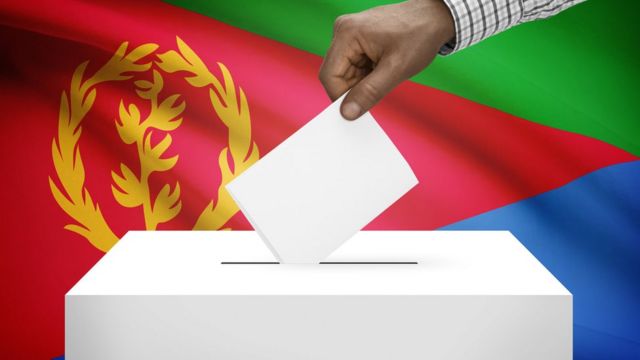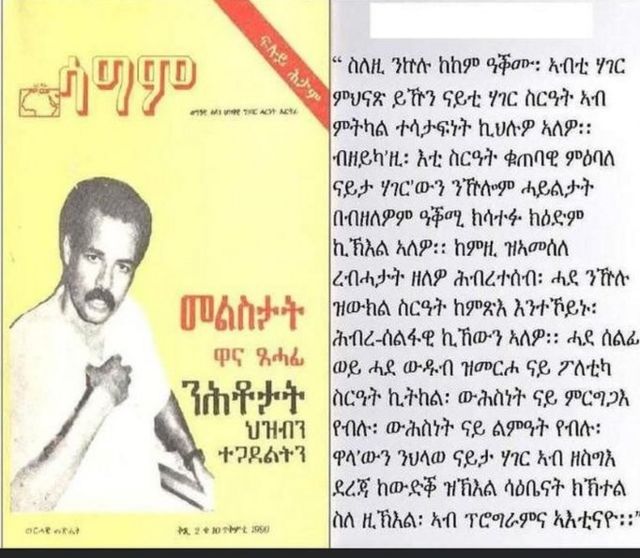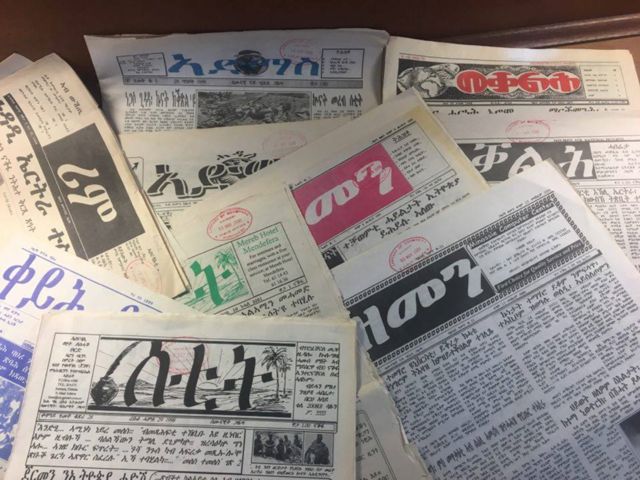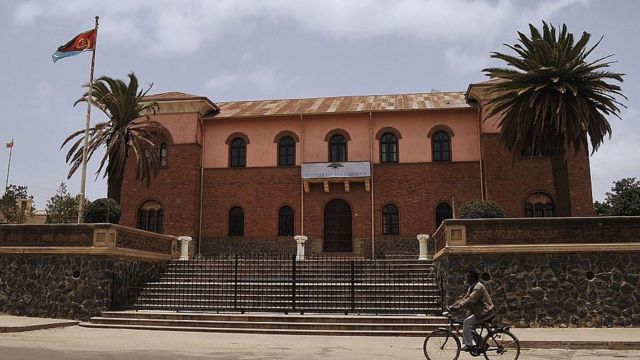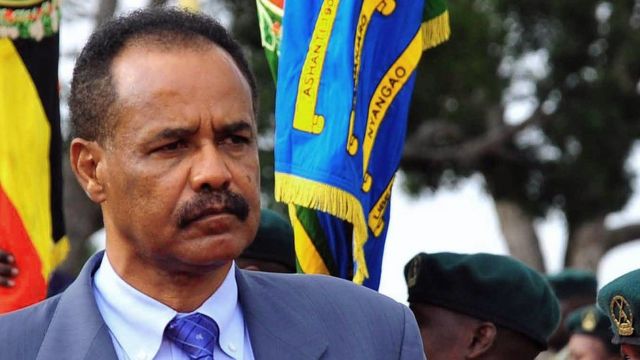Source: CNN
[Full text below]
The US Senate has unanimously passed a resolution calling for the immediate withdrawal of Eritrean troops from Ethiopia’s war-torn northern Tigray region, after a CNN investigation revealed that the soldiers were cutting off critical aid routes.
The resolution, sponsored by Senate Foreign Relations Committee chairman James E. Risch and passed by the Senate on Thursday, called on Eritrea to “immediately and fully withdraw its military forces from Ethiopia” and condemned human rights violations committed by the Eritrean military.
It also urged US Secretary of State Antony Blinken to ensure that a “full, independent, international investigation into all reports of human rights violations, abuses, and atrocities” committed in the course of the conflict is carried out and that those responsible be held accountable. Blinken called for such a probe on February 27, a day after investigations by CNN and Amnesty International into two separate massacres.
Thousands of civilians are believed to have been killed in Tigray since November, when Abiy launched a major military operation against the region’s ruling party, the Tigray People’s Liberation Front (TPLF), sending in national troops and fighters from Ethiopia’s Amhara region.
CNN has previously reported that soldiers from neighboring Eritrea had crossed into Tigray and perpetrated extrajudicial killings, massacres, sexual violence and other human rights abuses.
The renewed drive for action by US lawmakers was prompted by CNN’s investigation, which revealed Eritrean soldiers were manning checkpoints in Tigray, obstructing and occupying key humanitarian aid routes, roaming the halls of one of the region’s few operating hospitals and threatening medical staff.
On May 12, Von Batten-Montague-York, the Washington, DC-based advocacy group that led the push for the resolution, said on Twitter that CNN’s report “confirms what we have briefed members of Congress: War crimes are being committed against civilians in Tigray.”
“We are doubling our push for passage of S.Res.97 and sanctions against Ethiopian and Eritrean officials guilty of crimes against civilians in Tigray,” the group added.
Despite pressure from the US, there has been no sign that Eritrean forces plan to exit the border region anytime soon.
The Senate on Thursday called on the Biden administration to “conduct and impose strict accountability measures on those found responsible” of human rights violations, opening the door for potential US sanctions.
Rep. Michael McCaul, the top Republican on the House Foreign Affairs Committee, and Rep. Gregory Meeks, the New York Democrat who chairs the committee, have been leading a continued push for the Biden administration to “urgently use all available tools, including sanctions and other restrictive measures, to hold all perpetrators accountable and bring an end to this conflict.”
McCaul told CNN on Thursday that “there have been ample, credible reports from human rights groups and journalists on the continuing presence of Eritrean troops, and reports that have implicated them, and other armed actors, in human rights abuses, rape and other atrocities.
“It is clear that the Government of Ethiopia and the Government of Eritrea have not upheld their public commitment to withdraw Eritrean forces out of Tigray. Now we have this on-camera evidence from CNN.”
He argued that the “Biden administration needs to take action now to demonstrate we are serious when we demand accountability for atrocities.”
That the Senate—
(1) calls for the immediate cessation of hostilities in the Tigray Region of Ethiopia;
(2) condemns in the strongest terms all violence against civilians;
(3) calls on the Government of Eritrea to immediately and fully withdraw its military forces from Ethiopia, and condemns in the strongest terms any human rights violations, murder, looting, rape, and other crimes committed by the Eritrean military or any other forces in the Tigray Region or elsewhere in Ethiopia;
(4) strongly disapproves of the escalation of political tensions between the Government of Ethiopia and the Tigray People’s Liberation Front (TPLF) into armed conflict;
(5) calls for the swift and complete restoration of electricity, banking, telephone, and internet services throughout the Tigray Region and other parts of Ethiopia where communications have been restricted;
(6) appreciates the willingness of Sudan to welcome refugees fleeing the conflict in the Tigray Region;
(7) urges the Government of Ethiopia to—
(A) take tangible steps toward improving humanitarian access in keeping with commitments made to the United Nations World Food Programme and Secretary of State Antony Blinken;
(B) pursue accountability for human rights abuses and atrocities; and
(C) make progress on other key issues with regard to the conflict in the Tigray Region and threats to regional stability following the visit of Senator Coons;
(8) calls on the Government of Ethiopia to—
(A) ensure that any apprehensions of TPLF members are carried out with the least possible use of force and that the rights to which those detained are entitled under Ethiopian and international law are fully respected;
(B) require the immediate and full withdrawal of Eritrean forces from Ethiopia;
(C) release all opposition leaders, supporters, and activists detained on the basis of their political activity and views as well as journalists detained on the basis of their reporting, and respect the rights of all Ethiopians to free expression and political participation, without discrimination based on ethnicity, ideology, or political affiliation; and
(D) convene a credible and countrywide process of national dialogue and reconciliation inclusive of all nonviolent political parties, ethnic communities, religious groups, and civil society organizations in Ethiopia to work toward the sustainable resolution of grievances and chart a democratic and peaceful path forward for the country;
(9) urges all parties to the conflict to—
(A) cease all hostilities, commit to a political solution for resolving existing differences, fully comply with international humanitarian law, and refrain from actions that could continue, spread, or escalate the conflict, particularly attacks on civilian targets;
(B) make demonstrable progress to guarantee unfettered and immediate humanitarian access, for personnel and supplies, to areas affected by the conflict, and take all possible steps to protect the safety of civilians, including refugees, displaced persons, and humanitarian aid workers; and
(C) allow for, and cooperate with, independent and transparent investigations of any alleged human rights abuses committed in the course of the conflict in the Tigray Region and other conflicts across Ethiopia, and hold perpetrators to account in a credible process; and
(10) urges the Secretary of State, the Secretary of the Treasury, and the Administrator of the United States Agency for International Development, in coordination with the heads of other relevant Federal departments and agencies, to—
(A) engage at the highest levels with leaders of the Government of Ethiopia, the Government of Eritrea, and the TPLF to encourage the full cessation of hostilities and the withdrawal of Eritrean forces, mitigate the humanitarian crisis that has emerged from the conflict, and support an inclusive process of national dialogue and reconciliation;
(B) immediately establish criteria to end the pause of all non-life-sustaining assistance to Ethiopia and support programming to meet immediate humanitarian needs, including of refugees and internally displaced persons, advance nonviolent conflict resolution and reconciliation throughout the country, and aid a democratic transition in Ethiopia;
(C) take continued actions to ensure that a “full, independent, international investigation into all reports of human rights violations, abuses, and atrocities” committed in the course of the conflict as called for by Secretary of State Blinken on February 27, 2021, is conducted, and impose strict accountability measures on those found responsible;
(D) use all diplomatic, developmental, and legal tools to prevent further ethnic-based violence and mass atrocities, including by non-state armed groups, and promote competitive multi-party democracy in Ethiopia; and
(E) maintain close coordination with international allies and multilateral organizations regarding efforts to address the conflict in the Tigray Region and other regions of Ethiopia and bring attention to the conflict in international fora, including the United Nations Security Council.
Amend the title so as to read: “A resolution calling on the Government of Ethiopia, the Tigray People’s Liberation Front, and other belligerents in the conflict in the Tigray Region of Ethiopia to cease all hostilities, protect human rights, allow unfettered humanitarian access, and cooperate with independent investigations of credible atrocity allegations.”.


